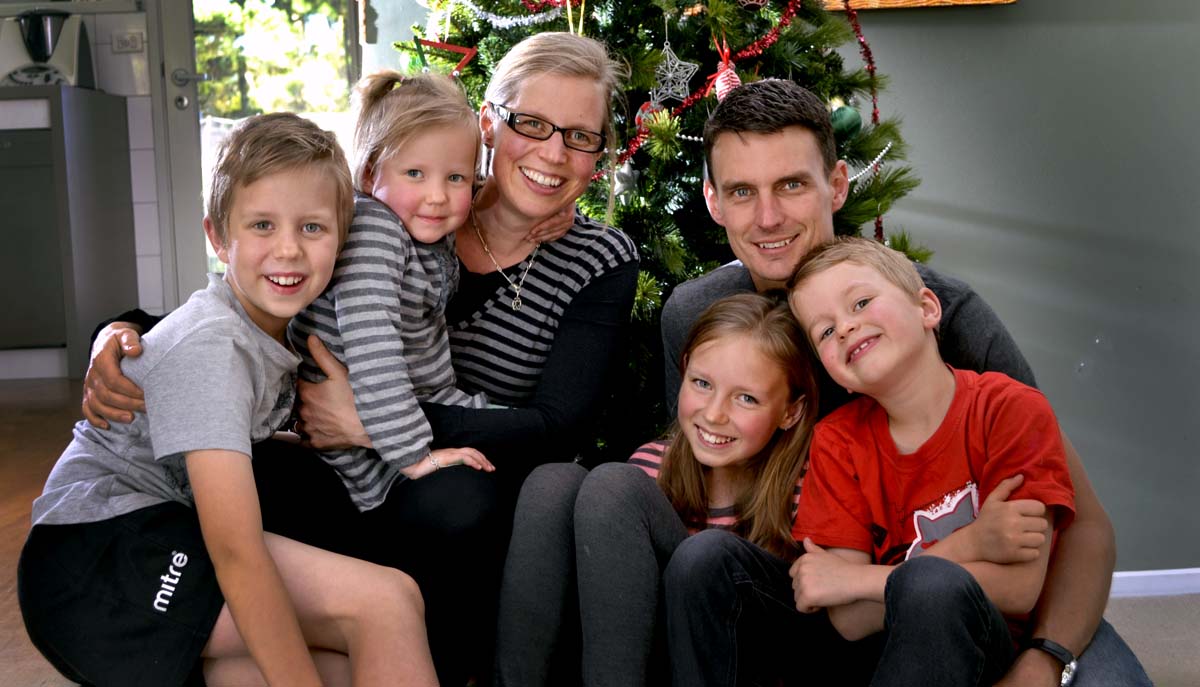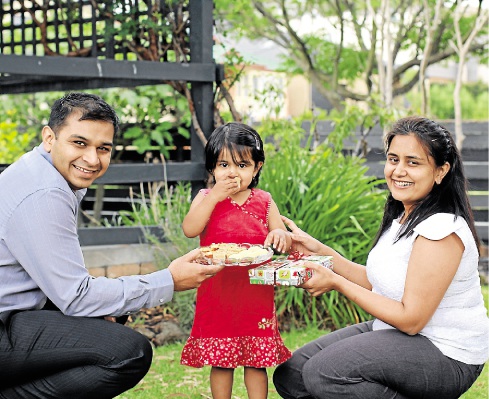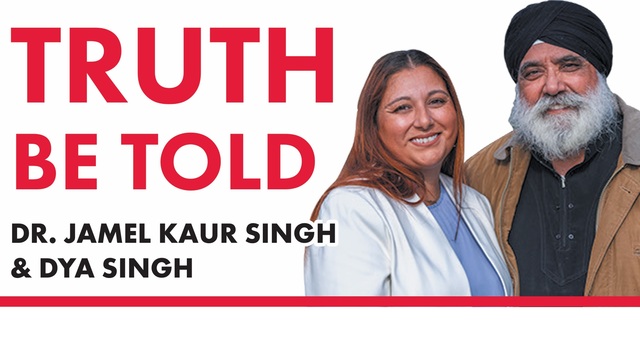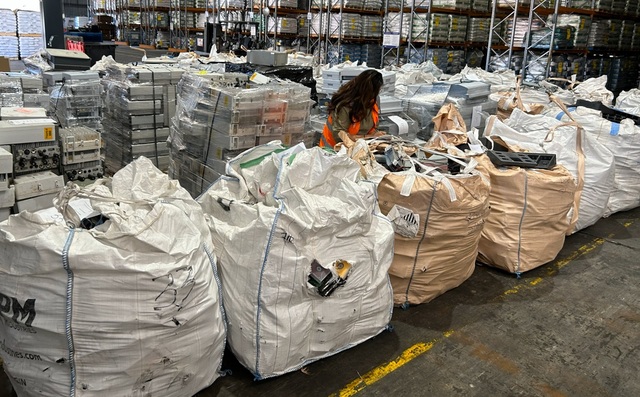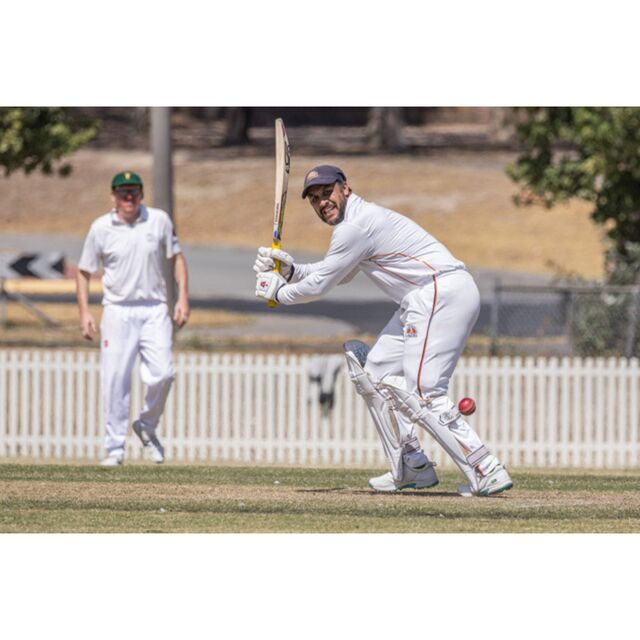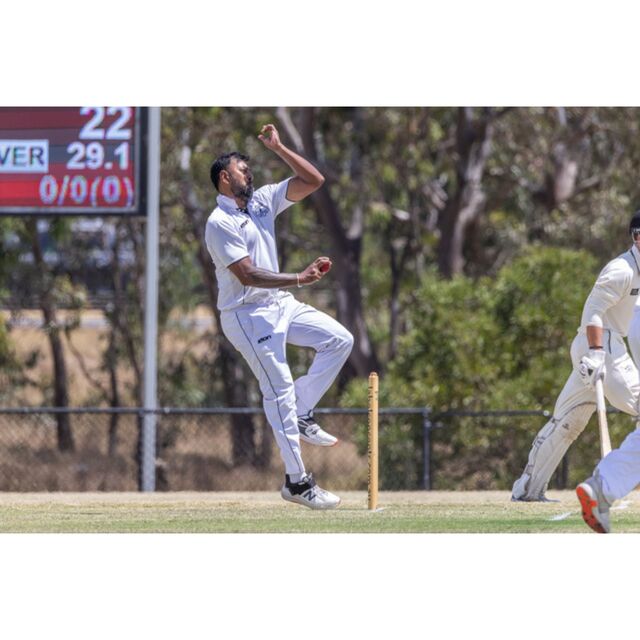FOR some, December 25 is a day to spiritually reflect on the birth of Jesus. For others, it’s just a public holiday. DAVID SCHOUT talks with Christian, Hindu and Jewish families about how they spend the festive season.
They’re hunched over, peering anxiously at the presents under the tree with their names on them.
Ripping off the wrapping paper, their excitement turns to joy as they play with their new toys, then contentment as they are spared the interrupted sleep most children experience on December 24.
“We open our presents up then to keep the focus of Christmas Day on Jesus,” their mother Phillipa says.
The Narre Warren North family of six are devout Christians, and while they enjoy all aspects of the festive season, they are not consumed by it.
“We celebrate Christmas just like lots of other families,” Phillipa says. “The kids love to put up the Christmas tree and decorate the house. They get so excited about presents. We enjoy good food and love getting together with family and friends.
“But I suppose, for us, the significance of Christmas is spiritual rather than the presents, hype and trimmings. The reason we celebrate is that God loved us so much that he sent his son to live with us.”
Phillipa and husband Rod admit that trying to get this message across is not always easy.
“It’s totally difficult not to get sucked into the commercial aspect of Christmas,” she says with a laugh. “Especially with kids that are ‘me, me, me’ — and I’ll admit that I’m the first person to love getting presents, and I love eating good food and having lovely decorations.
“We try to make our kids aware that the ‘busyness’ and hype at this time of year doesn’t help us look forward to and prepare for remembering the coming of the King. Those things are what our culture is telling us that Christmas is about, rather than what it is really about.”
Phillipa says passing on the Christian beliefs to her children means Jesus, rather than Santa, is their Christmas hero. “Our kids have got into ‘trouble’ at kinder when they’ve told ‘believers’ in Santa that he’s not true. It doesn’t go down so well.”
While the very essence of Christianity — Jesus dying on the cross to save the sins of man — means Christmas and the birth of Jesus is a significant date for them, families from other religions don’t share the same experience.
The Dedhias are a Hindu family of North Dandenong who naturally do not celebrate Christmas.
Nimesh Dedhia says his religion is not anti-Christmas. While it doesn’t celebrate the birth of Jesus Christ, it does adopt the positive aspects of the Christmas spirit.
“It’s never considered as ‘you should not be celebrating this’ … it’s more of ‘yeah, just enjoy’,” he says. “It’s still a time to spend with family and friends.”
However, the ‘family’ aspect of Christmas is virtually cancelled out for the Dedhias this year.
Nimesh, wife Komal and two-year-old daughter Ishika have no other family (bar Nimesh’s brother) in Australia. All their relatives are back home in India, and they will spend December 25 this year with friends.
As Nimesh explains what this will involve, his daughter is using her father’s limbs as a playground. “Growing up now with Ishika we generally give gifts — that’s all she seems to want,” he says with a laugh. “Giving sweets is also a big thing. Have you ever had Indian sweets?”
As Nimesh rushes off to the kitchen to grab an assortment of sweets, it is impossible not to notice the depictions of the Hindu deity Ganesha on the wall.
“India is very multicultural,” he says on return. There are a lot of Christians, Muslims, Hindus, Sikhs. So there are a few people who say ‘No you shouldn’t be doing that’ or ‘This is not our religion’, that sort of thing. But generally, if you ignore those fanatics, we are taught to respect each other’s religion and get involved [in Christmas] if we can.”
“What we’ve been brought up with, I think we’ve got more Christmas spirit and more feeling of Christmas in India than what we have here. Kids get more involved. There are more things happening.”
Unlike the de Haans and the Dedhias, the Kramers — a Jewish family of South Caulfield — do not share presents at all during Christmas. Jane Kramer and her husband Ivan, daughters Nicole and Elise, and son Jared traditionally spend the day with friends.
Their religion rejects the Christian view that Jesus is the son of God. “We recognise that Christmas is about Jesus, but Jesus was just a person, and we don’t believe in things like his resurrection,” Jane says.
But like most religions that don’t celebrate Christmas, there is still a heavy emphasis on family, friends and food for the Kramers on December 25. This year, like most years, the Kramers will go to their fellow Jewish friends’ house for a barbecue lunch.
“For us it’s a public holiday. We don’t totally reject celebrating Christmas and are often invited to have lunch or dinner with my daughter’s partner, whose family is not Jewish,” she says.
Jane says growing up in a Jewish household, she noticed she was different at Christmas time.
“There was a slight feeling of isolation. But as a young girl my parents owned a milkbar in Coburg and I would get gifts from many of the customers. Going to a Jewish school made it easier, too; none of my friends celebrated Christmas.”
Every Friday night the Kramers and their extended family meet together to prepare for ‘Shabbat’, the Jewish Sabbath.
Mrs Kramer says she loves her religion because it is “extremely family oriented”, and scoffs at those who say they are missing out at Christmas time. “I say to those people, ‘Your Christmas only comes around once a year, but we have ours almost every week’.”
It would seem that, although different cultures and religions choose to celebrate festivals in different ways, the notion of family, friends and food transcends any belief in a higher being.
What do you think? Post a comment below.
For all the latest breaking news, stay with this website. Also, follow the Weekly at facebook.com/dandenongjournal or on Twitter @DandenongJournal.

